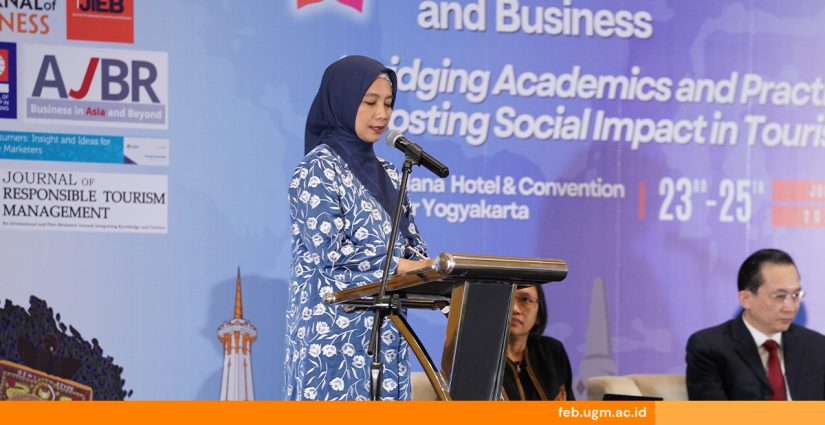
The tourism sector plays a strategic role in driving inclusive and sustainable economic growth, cultural preservation, environmental protection, and the strengthening of social inclusivity. It was conveyed by the President Director of Taman Mini Indonesia Indah (TMII), Intan Ayu Kartika, at the 13th Gadjah Mada International Conference on Economics and Business (GAMAICEB) 2025, held on Wednesday (23/7), carrying the theme “Boosting Social Impact, In Practice.”
Intan presented TMII’s major transformation in the forum through a revitalization program entitled #SudahBedaCerita (Now a Different Story). The program carries a vision of becoming the most beloved and enjoyable recreational destination, serving as a platform for cultural promotion and preservation, and showcasing Indonesia’s signature hospitality.
“Our commitment stands on four pillars: inclusivity, sustainability, culture, and intelligence,” said Intan.
Intan explained that TMII aims to serve as a public space accessible to all layers of society. By activating 70% of its area as green open space, TMII has become a tourist destination representing the archipelago’s cultural diversity while adopting a digital approach through smart platform implementation to enhance visitor experience.
As part of its contribution to the Sustainable Development Goals (SDGs), TMII strengthens its role by utilizing tourism as a tool for cultural preservation, environmental conservation, and the reinforcement of social values. These initiatives receive support through collaborations with various parties, including Runhub and players in the creative economy, and through promoting the film Jumbo. TMII also works with InJourney Hospitality House to organize hospitality and community-based service training to improve human resource capacity around the tourism area.
Intan also highlighted TMII’s impact-based evaluation approach through Social Return on Investment (SROI) and Triple Bottom Line (TBL) as a form of social responsibility. This evaluation covers the number of people impacted, community growth, and improvements in the institution’s image and reputation.
Report by: Shofi Hawa Anjani
Editor: Kurnia Ekaptiningrum
Sustainable Development Goals











